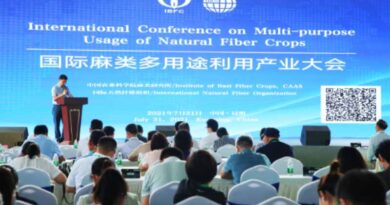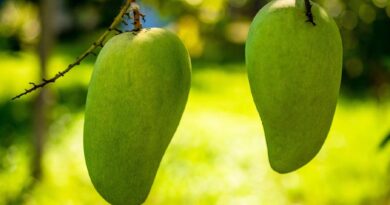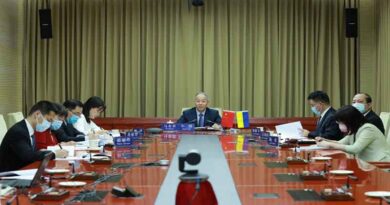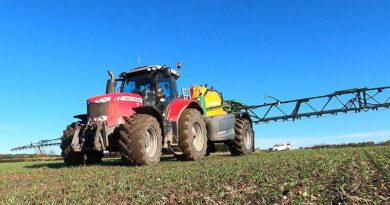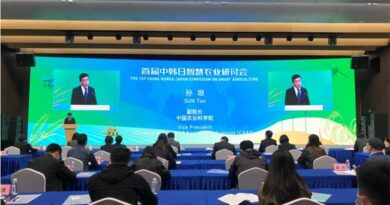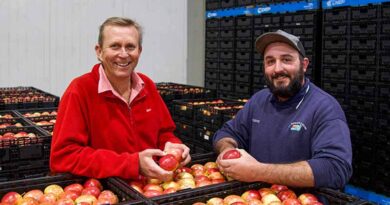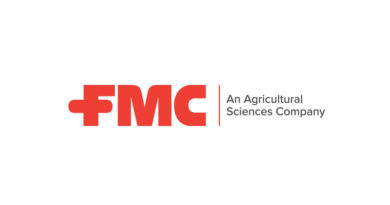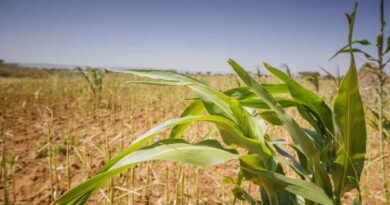Contributing to the development of sugar crops in China
27 December 2023, China: The summary meeting of the United Nations Food and Agriculture Organization (FAO) and Agricultural Technical Cooperation Project (TCP) “Ecologically Safe Planting and Resource Recycling of Sugar Crops” (hereinafter referred to as the “Sugar Project”) was held in Beijing. Representatives from the Agricultural Trade Promotion Center of the Ministry of Agriculture and Rural Affairs, FAO, Chinese Academy of Agricultural Sciences, Inner Mongolia Autonomous Region and Guangxi Zhuang Autonomous Region attended the meeting and discussed the prospects and strategies for the sustainable development of sugar crop production through ecologically safe planting and resource recycling.
“Sweetness” hidden worries: my country’s sugar crop production faces challenges
Sugar beets and sugar cane are the two major raw materials for the sugar industry. Their production is highly regional and is mainly concentrated in a few countries and regions with suitable climate conditions.
According to Wang Xu, a sugar project soil management expert and researcher from the Chinese Academy of Agricultural Sciences, China is the world’s largest sugar importer, third largest sugar consumer, and fourth largest sugar crop producer. It is one of the few countries in the world that A country with advantages in both sugar cane and sugar beet production. Despite the natural endowments and advantages of growing and producing sugar crops, China’s overall sugar crop production has shown a downward trend in the past decade. Wang Xu believes that China’s sugar production faces the following challenges: sugar crop production costs are high, and the yield and quality need to be improved; the quality and management level of cultivated land in main production areas are low; farmland irrigation water resources and nutrient utilization efficiency are low.
Guangxi Zhuang Autonomous Region and Inner Mongolia Autonomous Region are the regions with the largest sugarcane and sugar beet planting areas in China respectively. Data from the National Bureau of Statistics show that in 2022, Guangxi’s sugarcane planting area will be 850,000 hectares, accounting for approximately 66% of the country’s sugarcane planting area; Inner Mongolia’s sugar beet planting area will be 87,000 hectares, accounting for 54% of the country’s sugar beet planting area.
The sugar project was officially approved in December 2020, and the implementation period was from December 2020 to December 2023. Hechi City in Guangxi and Chifeng City in Inner Mongolia, which are the dominant sugar crop planting areas in China, were selected as the project areas. Through popularization and dissemination of technical concepts such as soil health, ecologically safe planting of sugar crops, resource recycling, and value-added benefits of the industrial chain will improve the planting technology and management capabilities of local growers to solve problems existing in sugar crop production. By carrying out ecological planting technology demonstrations of sugar cane and sugar beets, the project will establish a sustainable ecological and safe planting and resource recycling technology model for sugar crops, improve the soil ecological environment, increase farmers’ income, and promote the sustainable development of the sugar crop industry.
The “sweet” way: participatory training focuses on ability improvement
The promotion methods of the TCP project are mainly Farmer Field School counselor training (TOT) and Farmer Field School (FFS), focusing on participatory training.
“Participatory training focuses on heuristic teaching, teaching through fun, and integrating the sharing of experience results into every activity. At the same time, it focuses on the improvement of abilities, such as the ability to hold field schools, systematic planning abilities, and organization ability, time management ability, participatory evaluation ability, etc., and ultimately improve their decision-making ability.” Guo Rong, FAO project training expert and researcher, said, “TOT and FFS have achieved results in three aspects. First, they have trained the backbone of sugar beet and sugar cane cultivation. The team, secondly, establishes the concept of ecologically safe planting for trainees, and thirdly, introduces a new mechanism of participatory training, which has a certain role in transforming the top-down model of traditional agricultural technology training.”
From 2022 to 2023, the sugar project, with the support of relevant departments in Guangxi and Inner Mongolia, each carried out three phases of TOT and trained 31 field school counselors each. Subsequently, 5 counselor groups in Guangxi carried out FFS training in Yizhou District, Hechi City and Luocheng Mulao Autonomous County, with a total of 14 sessions and 301 trainees participating; 5 counselor groups in Inner Mongolia successively conducted FFS training, with a total of 24 sessions and 123 trainees. join.
“In the past, our training usually consisted of classrooms where the teacher lectured and the students listened. As a result, the students were not deeply impressed by the teaching content. But participatory training is bottom-up. We can not only conduct in-depth field observations, but also follow our own observations. We make exhibition boards and teaching plans based on the phenomena we have discovered, and then teach them to farmers, so that farmers can have a deeper understanding of knowledge and technology.” Wei Bin, representative of the counselors of the Farmer Field School and deputy director of the Guangxi Hechi Sugar Industry Development Center, told reporters.
“FFS training targets farmers, and it requires more guidance and guidance from our counselors.” Liang Hongwei, representative of the counselors of the Farmer Field School and manager of the Agricultural Technology Department of Guangxi Boqing Food Co., Ltd., said, “It was difficult to carry out FFS initially because of the farmers’ The degree of cooperation is not high, but as the training gradually progresses, farmers see with their own eyes the effects of using new technologies, and their learning initiative is also constantly improving.”
A “Sweet” Future: Consolidate Gains and Continue the Pattern
At the end of the three-year project, Guangxi sugarcane and Inner Mongolia sugar beet demonstration zones have achieved significant yield increases.
When TOT students tracked and observed the growth of sugarcane demonstration areas in Guangxi, they found that sugarcane treated with ecological planting combination technology showed certain advantages in terms of root system, tillers, plant height, stems, and leaf color. Yizhou District yield test results from 2022 to 2023 show that the yield increase of newly planted sugarcane treated with ecological planting combination technology is 11%-59%, and the yield increase of ratoon sugarcane is 9%-13%.
“We have deployed more than 2,000 acres of demonstration fields mainly in Wengniute Banner. Judging from the yield test results, the sugar beet treated with ecological planting combination technology has a significant effect in increasing yield and sugar, with an increase of 18%-25% and an increase in sugar content. 0.1-0.5 percentage points.” Liu Jingxiu, deputy section chief and extension researcher of the Chifeng Agriculture and Animal Husbandry Technology Extension Center, said: “On the basis of achieving good demonstration results in 2022, large growers who have received FFS training have developed more than 100 outside the project demonstration area. Sugar beet farmers, promoting scientific planting concepts to them have also achieved good results.”
“The sugar project has achieved very significant results. China can exchange experiences in sugar crop production with other countries and learn from each other to cope with the challenges faced in sugar crop production.” FAO Asia-Pacific Regional Office Land Management Officer and Project Chief Technical Officer Lucrezia Caen said that FAO is very optimistic about China’s successful cases and stories in the agricultural field and hopes that China can participate more in FAO projects and promote the further development of various projects.
“TCP plays the role of seed capital. It takes a project site and a project’s technical route as a starting point to explore technological improvement paths that combine international and domestic advanced experience with local actual conditions.” Deputy Director of the Agricultural Trade Promotion Center of the Ministry of Agriculture and Rural Affairs Director Zhao Lijun believes that “Although the sugar project is over, its model, team, and exchanges should continue.”
“We look forward to the participatory concepts and methods of Farmer Field Schools being carried forward after the project is over. The implementation of the project has strengthened the partnerships necessary for the healthy development of the sugar industry, and we look forward to such partnerships being able to support sustainable agricultural development in the future. to play a greater role on the road. FAO is willing to be a member of this partnership.” said Zhang Zhongjun, Assistant Representative and Charge d’affaires of the FAO Representative Office in China.
“We hope that FAO can continue to support us in carrying out more farmer training projects, promote the application of ecological planting and resource recycling technology models on a larger scale, effectively solve the problems faced by agricultural production development and water and soil resource protection, achieve energy conservation and efficiency, and promote agricultural development. High-quality development.” said Yi Keke, deputy director of the Institute of Agricultural Resources and Agricultural Zoning of the Chinese Academy of Agricultural Sciences, the project management and organization implementer.
Also Read: Planting seeds for bringing youth into agriculture
(For Latest Agriculture News & Updates, follow Krishak Jagat on Google News)


